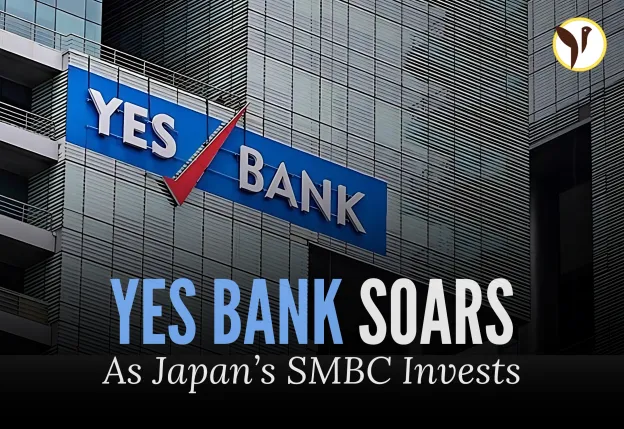Shares of Yes Bank surged by 9% in early trade on Monday after Japan’s Sumitomo Mitsui Banking Corporation (SMBC), a subsidiary of the Sumitomo Mitsui Financial Group and Japan’s second-largest bank, announced its decision to acquire a 20% stake in Yes Bank. This marks one of the largest foreign investments in India’s private banking sector.
The move triggered an initial rally in Yes Bank shares, which later cooled down but remained in the green, trading at ₹20.69 per share, up 3.4% on the NSE at 9:35 AM.
According to Yes Bank's stock exchange filing, “This transaction is the largest cross-border investment in the Indian banking sector. It is subject to regulatory and statutory approvals from the Reserve Bank of India (RBI), the Competition Commission of India (CCI), and other closing conditions.”
As per the agreement, SMBC will acquire a 13.19% stake from State Bank of India (SBI) and an additional 6.81% from other Indian lenders, including HDFC Bank, ICICI Bank, IDFC First Bank, Axis Bank, Kotak Mahindra Bank, Bandhan Bank, and Federal Bank. The deal, valued at approximately ₹13,483 crore, is priced at ₹21.5 per share.
These banks had collectively invested in Yes Bank during its financial reconstruction in March 2020 at around ₹10 per share. The latest deal provides these investors with estimated returns of 115% over five years, translating to an annual gain of over 20%.
The strategic investment is expected to provide Yes Bank access to SMBC’s global expertise, boosting its next phase of growth, profitability, and value creation. For SBI, the sale could result in a 7.5% increase in profits for FY26 and free up capital previously allocated for Yes Bank exposure.
While the RBI currently caps foreign ownership in private sector banks at 15%, SMBC’s planned 20% stake signals the possibility of regulatory flexibility, especially considering precedents where exceptions were made during banking crises to maintain stability.
Despite the shareholding change, SBI is expected to retain a significant stake in the bank going forward.
Disclaimer:
The information provided here is for informational purposes only and does not constitute investment advice. Jobaaj News does not endorse or recommend any investment strategies. Investors are advised to consult certified financial advisors before making any financial decisions.






